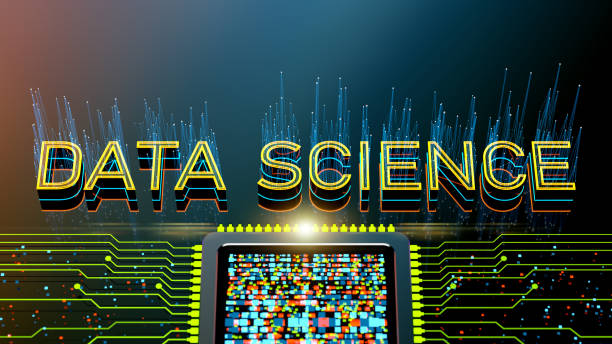Data Science vs Artificial Intelligence

Data Science and Artificial Intelligence are closely related yet wonderful fields reshaping the technological landscape. Data Science specializes in extracting insights and information from giant datasets, employing statistical evaluation, machine studying algorithms, and facts visualization strategies. It emphasizes knowledge records patterns to make knowledgeable selections and predictions. On the opposite hand, Artificial intelligence consists of growing structures which could execute tasks that typically require human intelligence, like hassle-solving, decision-making, and natural language processing. While Data Science leverages AI techniques, AI extends beyond facts evaluation, encompassing broader talents like reasoning and belief. Understanding their nuances is vital for leveraging their ability effectively in various domains.
Data Science Techniques and Tools
Masters in Data Science online Packages equip college students with various techniques and equipment important for navigating the complex landscape of facts. Here’s a glimpse into what those packages commonly cowl:
Statistical Analysis: Mastery of statistical strategies for records interpretation and inference.
Machine Learning Algorithms: Understanding and enforcing diverse ML algorithms for predictive modeling and pattern recognition.
Data Visualization: Proficiency in equipment like Tableau or Matplotlib for growing compelling visual representations of data.
Big Data Technologies: Familiarity with frameworks like Hadoop and Spark for processing large-scale datasets.
Programming Languages: Proficiency in Python, R, and SQL for statistics manipulation and evaluation.
Data Mining: Techniques for coming across patterns and tendencies in huge datasets.
Data Cleaning and Preprocessing: Strategies for preparing facts for analysis by dealing with lacking values, outliers, and so on.
Ethical Considerations: Recognising the moral ramifications of data technological know-how strategies and ensuring facts is used responsibly..
Delving into Artificial Intelligence Concepts and Applications
Artificial Intelligence (AI) encompasses various concepts and packages that mimic human cognitive features. At its middle, AI pursuits to allow machines to perceive, purpose, research, and act autonomously, frequently Using computer vision, natural language processing, and gadget studying techniques. One outstanding idea inside AI is device mastering, wherein computers research from statistics to expect or make choices with out explicit programming. This permits packages such as advice structures, fraud detection, and independent automobiles, revolutionizing numerous industries. Moreover, AI extends beyond character algorithms, encompassing broader concepts like neural networks, deep gaining knowledge of, and reinforcement learning, which facilitate complex trouble-solving and decision-making tasks.
AI’s programs span numerous domain names, from healthcare to finance to leisure. In healthcare, AI aids in ailment prognosis, personalized remedy plans, and drug discovery by studying big quantities of scientific records. In finance, AI algorithms optimize trading techniques, come across fraudulent sports, and automate customer service via chatbots. Furthermore, AI enhances consumer stories in entertainment through content material advice structures, virtual assistants, and immersive gaming studies. As AI advances, its packages turns into even greater pervasive, reworking how we stay, paintings, and interact with generation. Thus, delving into AI standards and applications unveils a global of innovation and possibility, promising unparalleled advancements in various fields.
Differentiating Data Science and Artificial Intelligence
- Scope and Focus:
- Data science normally deals with extracting insights and understanding from statistics.
- Artificial Intelligence (AI) specializes in developing systems geared up to perform operations that commonly name for human intelligence.
- Methodology and Techniques:
- Data technological know-how employs statistical analysis, device gaining knowledge of, and facts visualization.
- AI makes use of system mastering, neural networks, herbal language processing, and robotics.
- Goal:
- Data technological know-how pursuits to research and interpret facts to make knowledgeable choices.
- The aim of AI is to broaden machines that can mimic human intellect and perform responsibilities independently.
- Applications:
- Data science finds packages in commercial enterprise analytics, healthcare, finance, and advertising.
- AI is applied in fields like autonomous automobiles, digital assistants, gaming, and robotics.
- Interdisciplinary Nature:
- Data technological know-how draws from information, pc technology, and domain know-how.
- AI integrates pc science, cognitive psychology, philosophy, and neuroscience.
- In essence, whilst statistics technology makes a speciality of extracting insights from information, AI focuses on developing sensible systems able to performing tasks autonomously.
- Applications and Use Cases in Data Science
- Applications and use cases in statistics technological know-how span various industries and capabilities, leveraging its analytical power to derive insights and make knowledgeable decisions. Key factors encompass:
- Business Analytics: Utilizing data to optimize operations, decorate consumer stories, and pressure strategic choice-making.
- Healthcare: Predictive analytics for ailment analysis, patient tracking, and personalized remedy plans.
- Finance: Risk control, fraud detection, algorithmic trading, and patron segmentation.
- Marketing: Targeted advertising, client segmentation, and sentiment evaluation.
- Transp
Applications and Use Cases in Artificial Intelligence
Artificial Intelligence (AI) finds diverse applications across industries, revolutionizing processes and enhancing efficiency:
- Automation: Streamlining repetitive tasks and workflows.
- Predictive Analytics: Forecasting trends and outcomes based on data patterns.
- Natural Language Processing (NLP): Enabling machines to understand and generate human language.
- Computer Vision: Analyzing and interpreting visual data for object recognition, medical imaging, and more.
- Recommendation Systems: Personalizing user experiences by suggesting relevant content or products.
- Autonomous Vehicles: Enhancing safety and efficiency in transportation.
- Healthcare: Assisting in diagnosis, treatment planning, and drug discovery.
- Cybersecurity: Detecting and preventing threats through advanced algorithms and models.
- Synergies and Intersections: Data Science and AI
- Synergies and intersections among Data Science and Artificial Intelligence (AI) illustrate the complicated relationship among those two domain names. Data Science, with its recognition on using system mastering algorithms and statistical techniques to extract insights from records, paperwork the backbone of AI applications. AI, in other phrases, encompasses broader concepts like natural language processing. Machine learning and deep studying are 3 fields that notably depend on statistics-pushed strategies made feasible via Data Science equipment.
- Moreover, integrating data technology and AI results in effective synergies and complements the abilties of both fields. Data technological know-how gives the strategies and devices required to collect, clean, and examine facts. At the equal time, AI algorithms utilize this processed statistics to make predictions, classify styles, and automate selection-making approaches. This collaboration results in AI systems that constantly research from information, enhancing their accuracy and performance over time. Thus, the synergies between Data Science and open doorways for innovative solutions throughout diverse sectors, which include driverless vehicles, cyber seacurity, healthcare, and finance.
- Future Trends and Implications for Data Science and AI
- Advanced Automation: Integration of AI into data technology workflows will decorate automation, streamlining techniques and selection-making.
- Ethical Considerations: Greater emphasis on moral AI practices to address biases, privacy concerns, and transparency.
- Interdisciplinary Collaboration: Increased collaboration between information scientists, AI professionals, and domain experts to tackle complicated problems.
- Explainable AI: Rising call for for AI fashions that offer transparent factors for their decisions.
- Edg
Summary
The juxtaposition of Data Science and Artificial Intelligence illuminates their awesome yet interconnected roles in present day generation. While Data Science makes a speciality of extracting insights from statistics, Artificial Intelligence delves into simulating human intelligence. These domain names have awesome prospects for novelty and developmentn. A Masters in Data Science online Can provide absolutely everyone the know-how to navigate these domain names successfully, harnessing the electricity of statistics and AI to drive impactful answers throughout diverse industries, shaping the future of era and society.





